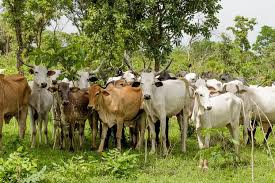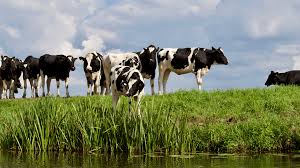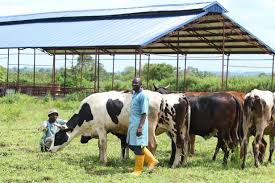Several factors influence pasture production in Nigeria, including climatic, soil, and socio-economic factors. There is a positive correlation between the amount of vegetation cover and soil moisture content.
Additionally, the types of soil on which pastures are grown directly impact their productivity. Farmers in Nigeria hold diverse socio-economic beliefs that play a significant role in pasture establishment and utilization.
Nigeria’s climatic zones vary widely, leading to differences in the amount and intensity of rainfall, which, in turn, affect vegetation cover.
Read Also: 16 Medicinal Health Benefits Of Scleromitrion diffusum (Spreading Diamond Flower)
Use of Native Pasture Species in Nigerian Agriculture

In Nigeria, the majority of farmers rely on native pasture species rather than improved species. This is primarily due to the availability of forage in natural rangelands, riverbanks, and roadsides (e.g., Amaranthus caudatus, Eragrostis ciliensis, Andropogon gayanus, Hyparrhenia rufa) during the rainy season.
Although these species are abundant throughout the year, their quality declines progressively as they mature. Therefore, to improve livestock performance, they need to be over-sown with improved pasture species. However, farmers must be familiar with this technology for easier acceptance and adoption.
Climatic and Soil Factors Influencing Pasture Growth

Nigeria’s diverse climatic zones support the growth of pasture species based on location. The amount of rainfall, relative humidity (the amount of water vapor in the atmosphere), environmental temperature, and other weather elements such as sunshine and wind all affect pasture production in the country.
The quantity and quality of forage produced are highly dependent on these climatic factors. Other important factors include soil type, fertility, and topography. Improved pasture species thrive on fertile soils that are relatively flat, leading to better yields and forage quality.
Read Also: 12 Medicinal Health Benefits Of Renealmia alpinia (Pink cone ginger)
Socio-Economic Factors Impacting Pasture Productivity in Nigeria

Several socio-economic factors affect pasture productivity in the Nigerian agricultural system:
1.Overgrazing of natural rangelands
- Lack of awareness among farmers about the importance of pasture farming
- Inadequate policies concerning pasture resources and improvement
- Fluctuating demand and supply of livestock products due to unstable income
- High cost and limited availability of pasture seeds, which many farmers cannot afford
- Poverty among farmers
- Absence of farmer organizations focused on pasture production and marketing
- Insecurity issues preventing farmers from expanding their enterprises
In this article, the factors that affect pasture production in Nigeria, both at small-scale and commercial levels, have been explored. Some of these factors are natural, while others are man-made. The modernization of Nigeria’s livestock industry depends on the successful production and management of pasture.
Do you have any questions, suggestions, or contributions? If so, please feel free to use the comment box below to share your thoughts. We also encourage you to kindly share this information with others who might benefit from it. Since we can’t reach everyone at once, we truly appreciate your help in spreading the word. Thank you so much for your support and for sharing!






